Every day, I hear at least four peers say they’re so tired they didn’t sleep until 3 AM. Although some may just be playing video games or scrolling on TikTok, many are completing their homework or staying late at their jobs.
Madeline Janorschke is the junior counselor and she understands the struggle for students to get enough sleep.
“We have a ton of students that work,” Janorschke said. “[They] can work till 10 PM.”
404 students recently participated in a sleep survey. In this survey, 94.3 percent of students aren’t getting enough sleep every night. According to the American Academy of Pediatrics, the recommended amount of sleep for teenagers is 9.5 hours. That fact leaves only 23 students getting an adequate amount of sleep each night.
A lack of sleep in teenagers can negatively affect their minds and bodies. The effects may seem obvious: no focus, moodiness and a lack of energy. But not getting enough sleep can have much more sinister effects. A lack of sleep can correlate with more viruses, worse mental health and even cause chronic illnesses.
Viruses such as the common cold, pneumonia, mono, COVID-19 and the flu are common at this time of year, but a lack of sleep can severely increase your chances of developing one. While in deep sleep, your body physically resets itself and builds up your immune system. One of the nurses– Kayla Young– highlighted this fact.
“When we don’t get very good sleep, we can’t fight those acute illnesses as well; those colds, flu and COVID as well,” Young said.
The student survey demonstrates how common sickness is in these first few months of school; 63.4 percent of students say they have been sick at least once this year. Although sickness is not only caused by a lack of sleep, it decreases your immunity and makes you more likely to get sick.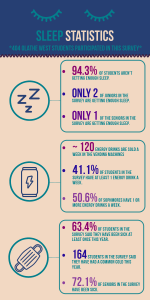
Unsurprisingly, that puts the juniors and seniors at the highest risk for these viruses. Of those surveyed, seniors had the fewest students getting the recommended amount of sleep, with only one achieving that. This correlates to the number of seniors getting sick, which is also the largest percentage of the survey. 72.1 percent of seniors have contracted a virus at least once this year.
Only two of the 72 junior participants get at least 8.5 hours of sleep. With 63.3 percent of juniors having been sick, this continues the pattern that sleep is associated with the likelihood of getting sick or explosively pooping your pants.
This can be observed in the remaining grades as well. As you go down the grade level, the amount of sleep they’re getting decreases, and the percentage of them developing ailments increases.
A lack of sleep can negatively affect your physical health and, additionally, your mental health. Kayla Wiltse– the Senior Counselor– explained this.
“Without enough R.E.M. sleep, it can negatively affect your physical and mental health,” Wiltse said.
According to the Cleveland Clinic, R.E.M. Sleep, or rapid eye movement is the stage of sleep in which your mind restores itself and allows for brain development. Without R.E.M. sleep your brain doesn’t rest, and this allows for the development of depression and anxiety.
“Teenagers are prone to a lot of mental health issues, [because of] a lot of pressure they have to experience and their brains aren’t fully developed,” Young said. “It can be harmful not getting enough sleep for [their] mental health alone.”
But mental health risks aren’t even the worst possible side effect of a lack of sleep. Sleep-deprived bodies are also more prone to chronic illnesses which can be fatal.
“A lot of the chronic disorders that we see are directly related to not getting enough sleep,” Young said. “Cardiovascular disease, strokes, heart attacks, diabetes…”
Not getting enough sleep increases the stress hormone in your body– cortisol– which causes high blood pressure. This high blood pressure in turn causes more risk for heart disease, strokes, and heart attacks.
Additionally, your metabolism is worsened by a lack of sleep; consequently, your risk for type 2 diabetes is also increased.
Students can adopt various strategies to enhance their sleep quality; avoid looking at screens an hour before bed, exercise, avoid nicotine, etc. By taking these actions, they should find it easier to rest and be more safe from physical and mental risks. If they notice no improvement in their sleep, it might be helpful to consult a counselor or a physician.
Janorschke leaves students with one final message:
“Sleep is such an important thing that students or really all people don’t get enough of.”


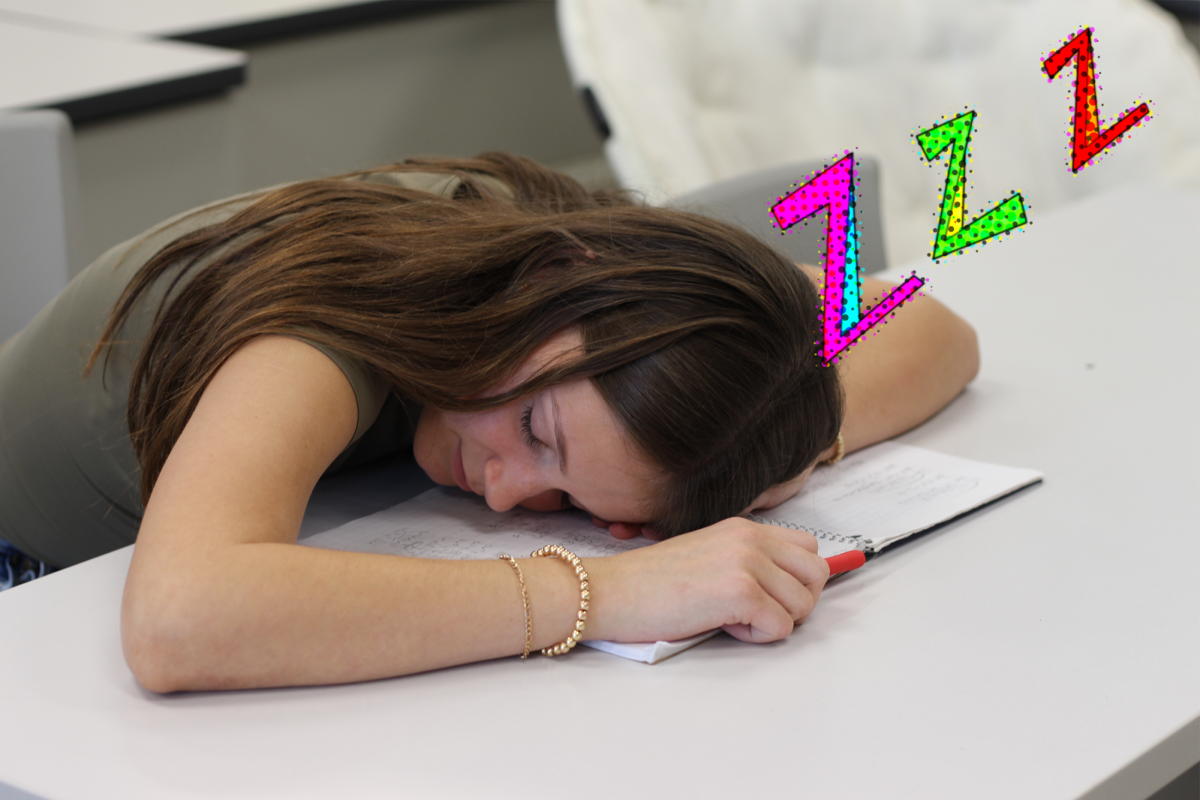

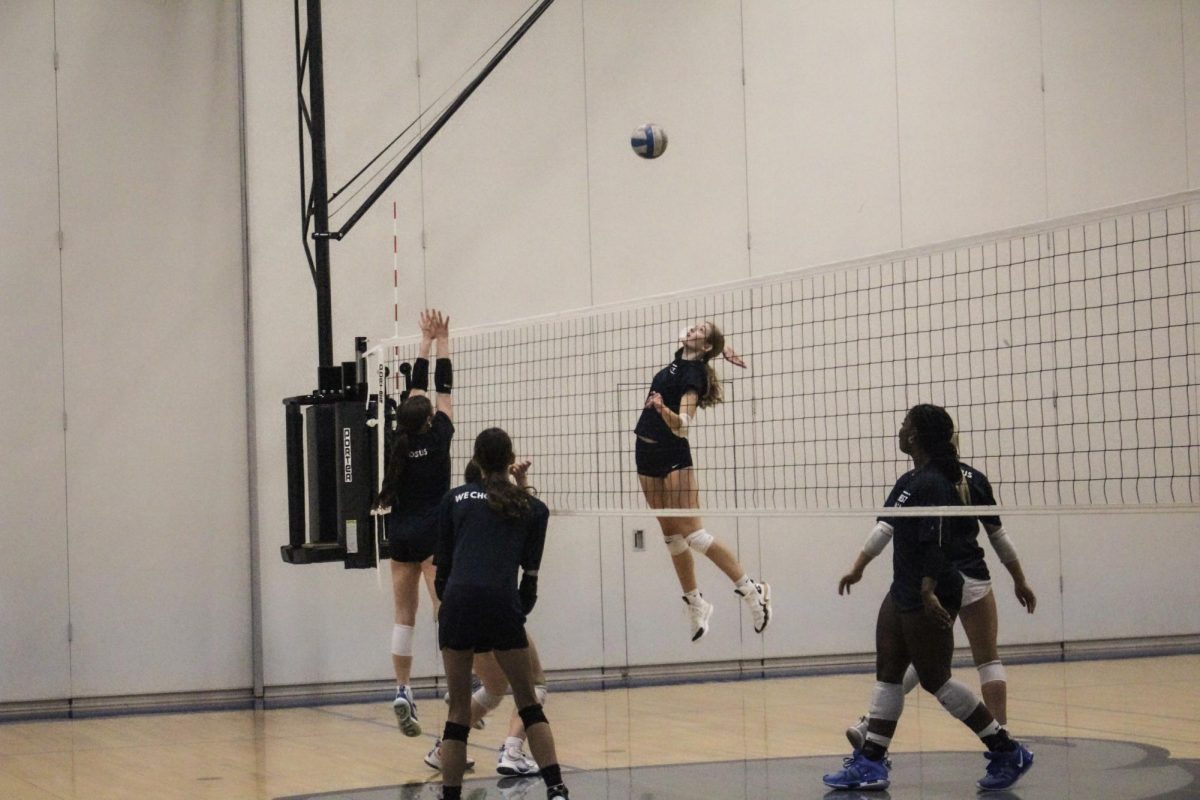


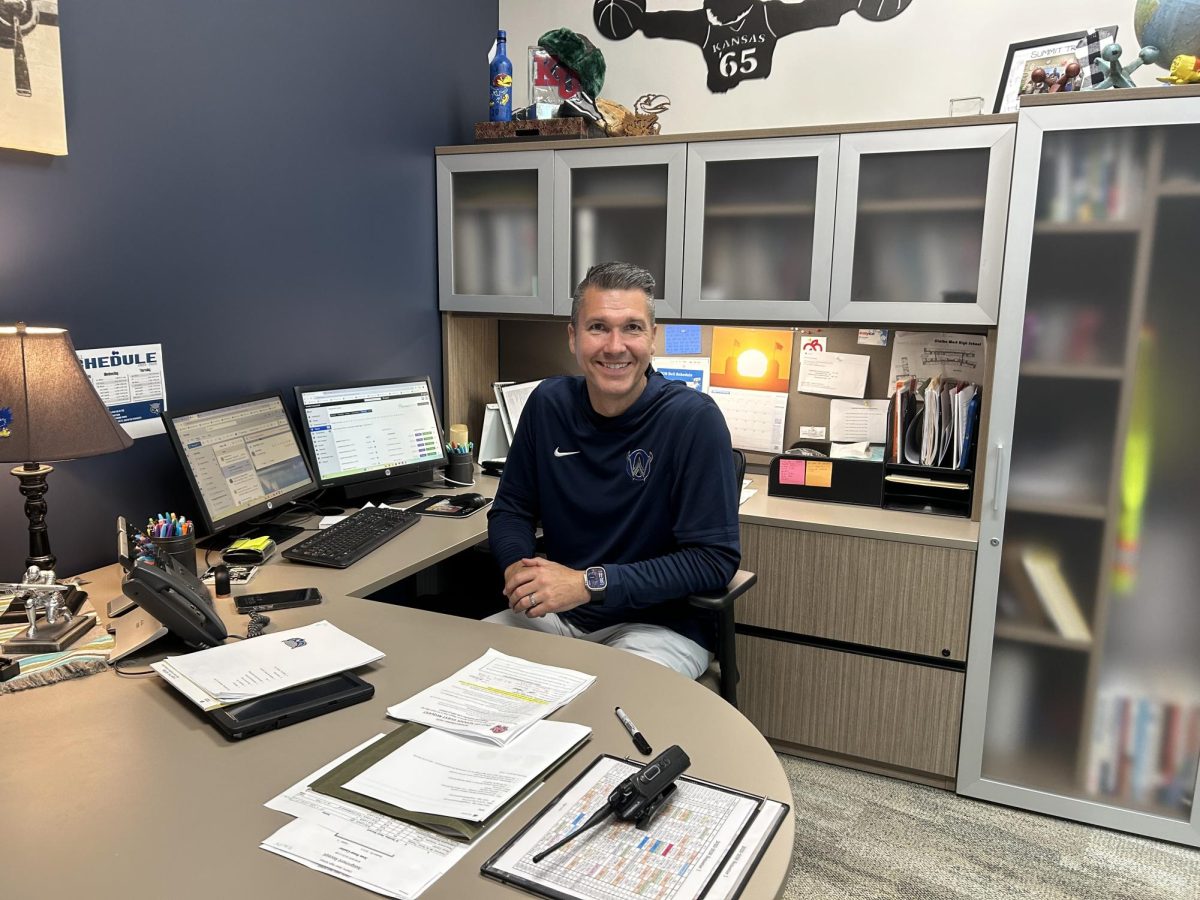
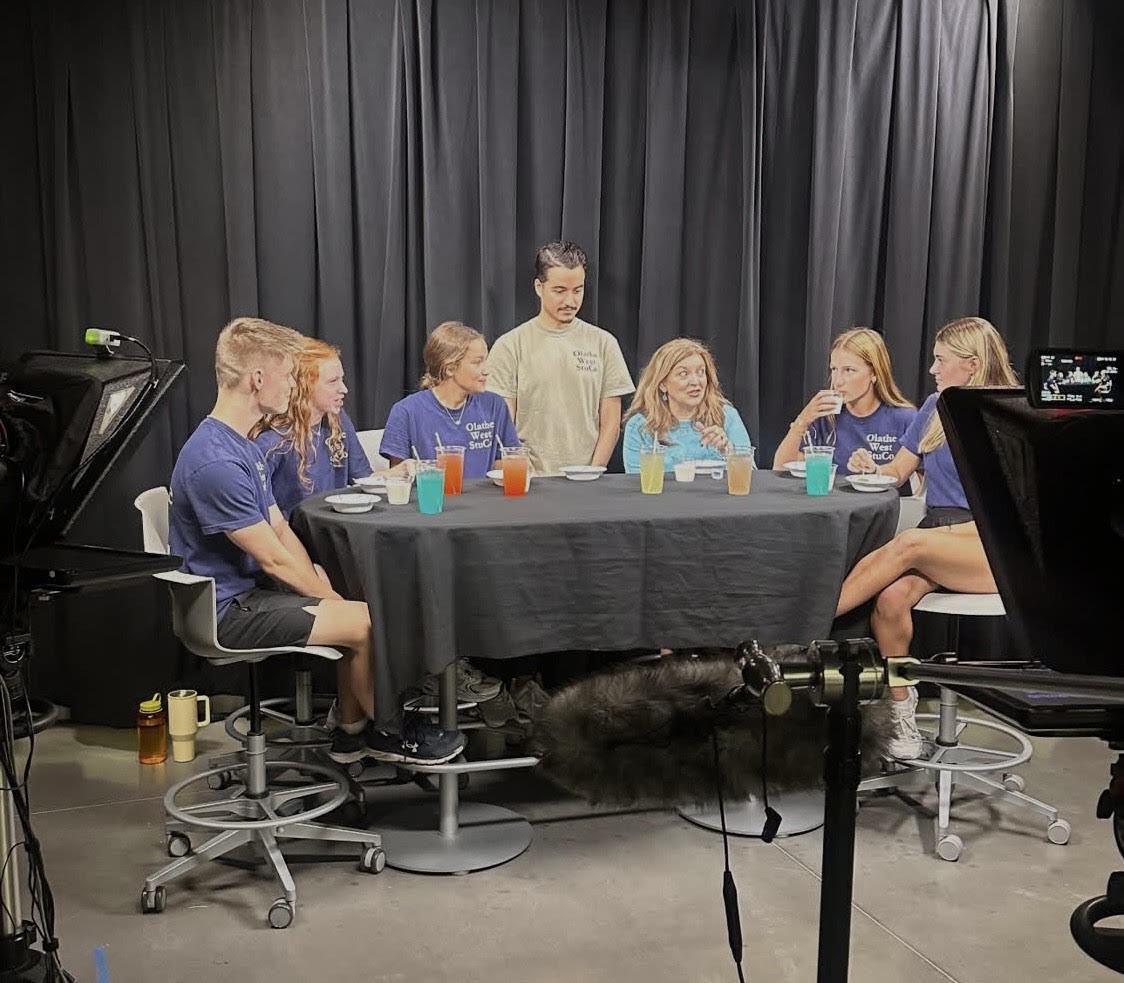
Noah Taylor • Nov 12, 2024 at 10:21 am
Really amazing article, I think it covered a very important issue and the quality and writing was amazing.